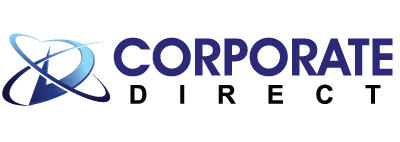Let’s start with the good…
California Raises their Homestead Exemption
The homestead exemption is an excellent creditor protection strategy for personal residences.
It all started in Texas when they were an independent republic from 1836 to 1846 and in need of settlers. Texas passed a law whereby creditors could not reach the equity of your homestead (your farm, ranch or dwelling). It worked like a charm and other U.S. states followed suit,
While the homestead amounts in Texas as well as Florida, Kansas, and Oklahoma are unlimited, other states have their own dollar limit. In Arizona, for example, the amount of equity you can protect is $150,000. So, if your home is worth $500,000 and you have a first deed of trust securing your mortgage of $350,000 there is $150,000 in equity exposed. By filing the homestead exemption form with the county recorder’s office (a process that may vary state to state) you have set aside the $150,000 in equity for your benefit as against a later creditor.
California’s homestead has been kept at a low and confusing amount for many years. A single home owner could protect $50,000 while an elderly married couple could protect $175,000 in equity. But those dollar amounts didn’t reflect the high cost of California real estate. A $50,000 homestead in some high rent areas may not protect a backyard Tuff Shed. So California, after years of inaction, did the right thing. They raised the homestead amount and indexed it for inflation.
The new homestead has a baseline amount of $300,000 but can go as high as $600,000 in counties with expensive real estate. Assume a couple is burdened by credit cards and car loan debt but they’ve built up equity in their home. Before, with the lowered homestead amount, they could lose their home to foreclosure. Now with the $600,000 in protection (and rising every year with inflation) the couple could go through a Chapter 13 bankruptcy and keep their home.
Homesteads offer significant protections to homeowners. It is good to see California recognize that.
And we’ll end with the not so good…
Congress and Corporate Transparency: A New Burden for Small Businesses
The Federal government wants to know who owns your business. In December, 2020 Congress passed the Corporate Transparency Act (CTA). Before this bill companies did not have an obligation to report their true owners to the feds. As long as the company paid their taxes there wasn’t an issue.
But within the federal bureaucracy and law enforcement circles there are people who just need to know more. Arguing that shareholder anonymity allowed bad people to engage in financial crimes, including – sound the alarms – money laundering and terrorist financing, the CTA passed both houses. Instead of requiring the states, which govern corporate formation, to collect such information, beneficial ownership data on every corporation and LLC must now be reported every year to the U.S. Department of Treasury’s Financial Crimes Enforcement Network (FinCEN).
Opponents argued that such information could be easily gained and misused. Proponents countered with hubris, stating that all the sensitive data would be stored on private networks away from public scrutiny. Their assurances of confidentiality occurred the same week as the identification of the massive Solar Winds hack, the Pearl Harbor of cyber-attacks, in which the Russians gained God access to thousands of federal websites and networks.
But never mind that. Law enforcement’s desire to know who owns every corporation, LLC, LP and other state-chartered entity is clearly written into the legislation. FinCEN must keep the names and addresses confidential (servers willing) except when:
- Federal Agencies involved law enforcement, intelligence and national security want it;
- State and local agencies involved in criminal or civil investigations after obtaining a court order want it;
- Foreign intelligence agencies want it; and
- Other federal regulatory agencies including the IRS want it.
As such this confidential information can be expected to be used by both governments and dark web hackers. By 2023, every business entity at the time of its formation and on an annual basis thereafter must report its beneficial owners’:
- Full legal name;
- Date of birth;
- Current residential or business street address; and
- Unique identifying number from a U.S. passport, state drivers license or similar state issued ID.
The complete disclosure requirements, including the meaning of ‘beneficial owner’, will be further fleshed out by future regulations.
Corporate Direct will keep you informed of these new rules and will attempt to assist you with filing your FinCEN report. Failing to properly file will carry penalties of up to $10,000.00 and two years in prison. So while not welcoming this new reporting burden, we will work with you to stay on the safe side of it.

